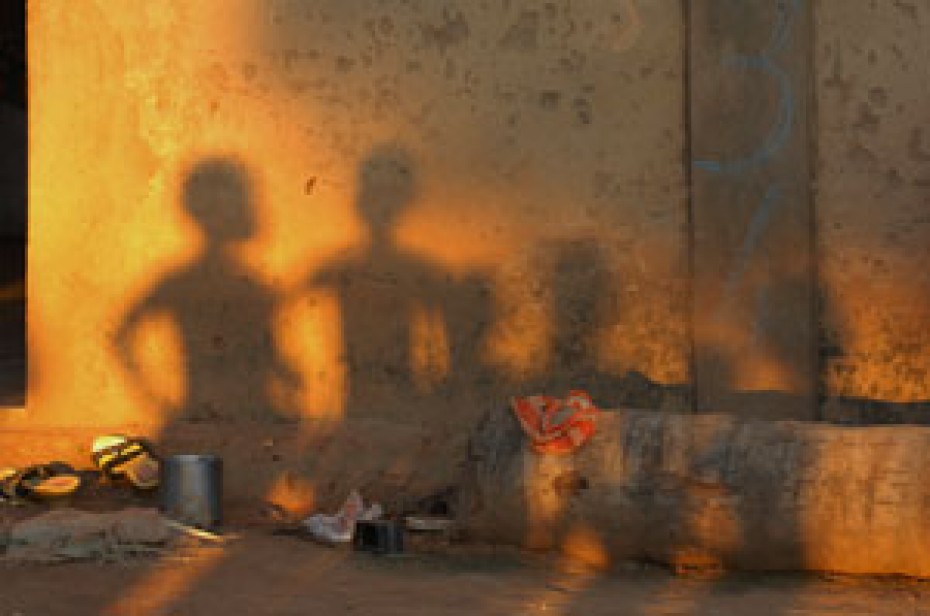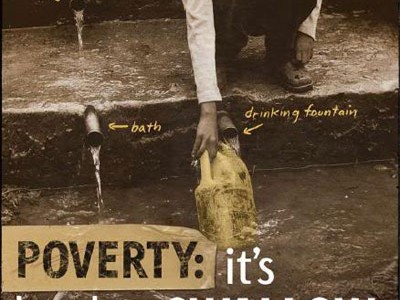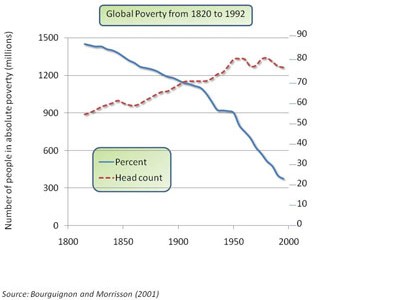What is the Definition of Poverty?
The absence of a clear definition is a serious problem for organizations whose missions are to eradicate poverty or, in our case, to release children from poverty.
Tell us how you understand and define poverty, and then in future blog posts we’ll explain the basis of our holistic approach to ministry and what our definition and understanding of the problem is.
Continue Reading ›What Does Isaiah 58 Have to Do With Poverty?

How does Isaiah 58 relate to extreme poverty? How does it relate to oppression and corruption? Does Isaiah 58 have anything to do with these topics?
How about its relevance to how we serve the Lord today? What are your thoughts?
Continue Reading ›
Poverty is Hard to Swallow
You can help quench the world’s thirst. You have the freedom to act.
Fewer Children Are Dying
Good news from the government is pretty rare. Good news in the media is even more rare. So when I read this headline the other day, I smiled: “WHO sees good progress on UN health goals for poor.”
According to a recent study by the U.N.’s World Health Organization, good progress is being made on health-related Millennium Development Goals (MDGs).
- Fewer children are dying.
- The estimated percentage of underweight children under 5 has dropped.
- New HIV infections have declined.
- Existing cases of tuberculosis are declining.
- The world is on track to achieve the MDG target on access to safe drinking water.
Let’s just pause for a moment to let this sink in. We are making progress. Let’s celebrate this!
Of course, this doesn’t mean we can slow down in our fight against global poverty. If anything, seeing progress should motivate us to work even harder. And, as has been mentioned around here before, eliminating extreme poverty is just a matter of priorities.
The annual income of Christian American churchgoers is $5.2 trillion. The amount of money needed to end global poverty is about $74 billion a year. … Basically, 1 percent of our annual income a year is what is needed to end extreme poverty.
So the question is, what are your priorities?
I Command You to be Openhanded Towards the Poor
Last month, Wess visited Australia and we grabbed him for a chat about why he is sold on child sponsorship as a way to help children, and what the Bible tells us about poverty.
There will always be poor people in the land. Therefore I command you to be openhanded toward your brothers and toward the poor and needy in your land. — Deuteronomy 15:11 (NIV)
Opportunity Knocking: Knockout the Poverty Bullies
Will you respond when calamity knocks? When a poor child has no defenses? When she’s cornered by the bullies of poverty?
A Water Wake-Up Call
![]() Ninety-nine percent of the time, I get ready for my day after my 6½-year-old goes off to school. My 15-month-old daughter takes her morning nap around this time, and my 3-year-old plays on starfall.com. It just works better this way.
Ninety-nine percent of the time, I get ready for my day after my 6½-year-old goes off to school. My 15-month-old daughter takes her morning nap around this time, and my 3-year-old plays on starfall.com. It just works better this way.
But for whatever reason, one morning last month I woke up early — too early in my opinion, and I could not fall back asleep.
“Might as well get up,” I thought. So, I got a shower in and, wouldn’t you know, not 10 minutes after I stepped out, I hear a loud “CHUG CHUG CHUG!” coming from my cellar.
I ignored it (mainly because I don’t like going into the cellar) and went to brush my teeth. No water.
CHUG CHUG CHUG.
Great.
After mustering up my courage, I ventured down into the cellar where I could hear the pump or softener making a loud racket.
Now, I’m not a Mrs. Fix-It by any means, but I did know that I should probably turn off the breaker so whatever it was wouldn’t burn out. (Pat myself on the back …)
My husband told me to call the plumber, and thankfully by 3:30 that afternoon, the plumber had dug up our well and found that the iron in the water had corroded part of the well pump pipe (or something like that), which caused the pump to stop pumping the water up.
Purely maintenance, but I was happy the problem was solved. To a degree anyway.
I was informed that I was not to use the water for a couple days so that the filter could go through a few cycles to clean the water.
“Roughly 12 percent of the world’s population, or 884 million people, do not have access to safe water.”
“Yeah, okay, no problem,” I thought, but I soon realized that I use water for way more things than I thought:
- brushing my teeth
- taking a bath or shower (which I had to chuckle at, because God made sure I was up before this little event happened … am I that bad before I shower?)
- rinsing off the dishes
- running the dishwasher
- running the washing machine
- cooking
- ice
- flushing the toilet — which was okay to do after they fixed the pump, the water was just a murky gray.
- washing my hands
“Diarrheal diseases can be reduced by more than 40 percent through the simple practice of washing hands with soap and water.”
“The average person in the developing world uses a little more than 2.5 gallons of water each day for drinking, washing and cooking. Whereas the average person in the developed world uses 13 gallons per day only for toilet flushing. “
My “water poverty” problem lasted only a few days and just required some simple adjustments to our lifestyle. My husband picked up several gallons of water on his way home from work, which allowed us to continue in a fashion pretty close to normal. But as I waited for him to get home with the water, I stood in my house — and I broke down.
What about my sponsored children?
Where do they get their water?
How far do they have to travel?
Is it clean?
“Water-related diseases are the second biggest killer of children worldwide. This is around 5,000 deaths a day.”
Sources: www.who.int, www.wateraid.org, www.unicef.org

The Ability to Eliminate Extreme Poverty Is Just a Matter of Priorities
The Church’s ability to eliminate extreme poverty is just a matter choosing to do so. We used to say that 40,000 children under age 5 die every day of hunger or preventable diseases. Today, that number is 24,000. These statistics show that in 20 years the number of children who die every day of hunger or preventable diseases has been cut in half. Yet, the birth rate is actually going up. The population is increasing.
Give Up On Serving the Poor?
I read a blog post the other day that I want to share with you. It’s titled Why I Stopped Serving the Poor, and it was written by Claudio Oliver of Curitiba, Brazil. His grandparents founded the Salvation Army in Brazil.
“Without exception, rich and poor have the same conviction that what they need is something that the market, money, the government or some other agency can offer them.”
I don’t remember how I stumbled across his post, but I do know it rocked me to the core. And it’s a pretty timely subject since Saturday is the International Day for the Eradication of Poverty.
“The only way to remain with the poor is if we discover that we are the miserable ones. We remain with the poor when we recognize ourselves, even if well disguised, in him/her who is right before our eyes. When we can see our own misery and poverty in [the poor], when we realize our own needs and our desperate need to be saved and liberated, then and only then will we meet Jesus and live life according to His agenda.”
Pretty much every word I read resonated deeply within me. It was refreshing to hear a Christian talk in such a counter-cultural way about poverty.
“Jesus doesn’t have any good news for those who serve the poor. Jesus didn’t come to bring good news of the Kingdom to those who serve the poor; he brought Good News to the poor. He has nothing to say to other saviors who compete with him for the position of Messiah, or Redeemer.”
The thing that struck me most was the author’s humility. He speaks about his own journey with a transparency that gives credence to his words.
“Over the years I’ve discovered that the very position of serving the poor from a commitment to “liberate” them, has been filled with a sense of superiority.”
I have been racking my brain for days trying to come up with a way to get you interested enough to read the post. After many abandoned attempts, I decided to just take the direct route.
You should read the article, Why I Stopped Serving the Poor. I promise … it will be worth your time.
“I have given up on serving the poor. I’m going back to encountering the poor and finding myself in them.”
The Ability to Eliminate Poverty: Is It Just a Matter of Interpretation?
Is our ability to eliminate poverty just a matter of how we interpret the Bible? John 12:7-8 is the verse that has captured our thoughts as we think about the poor. The verse that is now the most remembered about the poor.
And yet, when Jesus spoke, he was not talking to us. His use of “you” was not intended to be directed at us. This reference, this statement, was very specifically directed at Judas.
Eliminate Poverty: Can We Do It or Not?
On the subject of eliminating poverty, how do we reconcile the seemingly conflicting messages of John 12:8 and Deuteronomy 15:4?
Why We Should Care About Honduras
![]() This is the byline on a recent op-ed piece in The Miami Herald:
This is the byline on a recent op-ed piece in The Miami Herald:
“Edouard Lassegue is the Vice President of the Latin America and Caribbean Region at Compassion International, the world’s largest Christian child development organization.”
And this is why Edouard says we should care about what is happening in Honduras:
Poverty in Central American countries is the foundation for all other social justice issues. Honduras maintains an unemployment rate of 28 percent, and two-thirds of its citizens live below the poverty line. The instability the country is currently experiencing is not rooted in politics — it is social. It is hopelessness and destitution.
When Central American economies fail to produce opportunities and jobs — and if governments cannot protect citizens — populist demagogues promising reform but continuing the status quo are elected.
Where poverty flourishes, crime and corruption flourish. This is what we are currently witnessing in Honduras.


